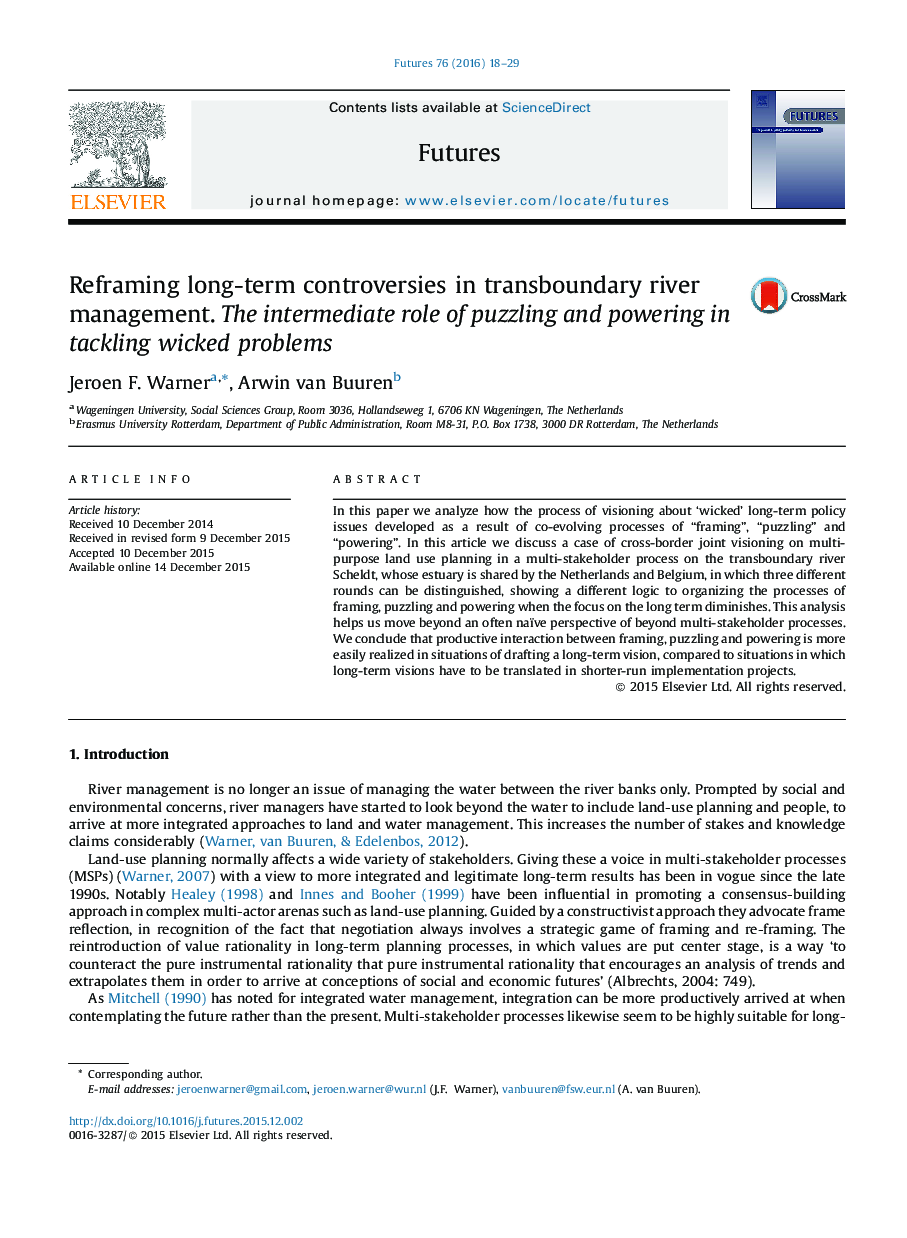| Article ID | Journal | Published Year | Pages | File Type |
|---|---|---|---|---|
| 1015403 | Futures | 2016 | 12 Pages |
•Multi-stakeholder visioning on the future of the transboundary river Scheldt estuary, shared by the Netherlands and Belgium, comprised three different rounds, each with their own time scale frames.•‘Puzzling,’ ‘powering’ and ‘framing’ each play a key role in such negotiations, rather than any of them in isolation.•The productive interaction between the three works better for the long term than for the short run.
In this paper we analyze how the process of visioning about ‘wicked’ long-term policy issues developed as a result of co-evolving processes of “framing”, “puzzling” and “powering”. In this article we discuss a case of cross-border joint visioning on multi-purpose land use planning in a multi-stakeholder process on the transboundary river Scheldt, whose estuary is shared by the Netherlands and Belgium, in which three different rounds can be distinguished, showing a different logic to organizing the processes of framing, puzzling and powering when the focus on the long term diminishes. This analysis helps us move beyond an often naïve perspective of beyond multi-stakeholder processes. We conclude that productive interaction between framing, puzzling and powering is more easily realized in situations of drafting a long-term vision, compared to situations in which long-term visions have to be translated in shorter-run implementation projects.
